Five things decision-makers should know about the electrification of society
Electrification plays a key role in solving the climate crisis. Aalto University researchers describe what kind of challenges this entails and how they can be tackled.

The School of Chemical Engineering covers a much wider range of education, research and development than you might think. The school studies sustainable battery technologies and raw materials recycling, researches for answers to the pressing issues in the textile and energy industry and the bio-economy, and creates new kinds of materials and responsible processes.
The scale of the global challenges before us makes multidisciplinary thinking and collaboration with the various scientific and industrial sectors a must. This is why crossing scientific borders is a daily affair at the School of Chemical Engineering.
Less than 60% of Aalto University’s costs are covered by the budget of Finland’s Ministry of Education and Culture. The rest comes from other sources, including private donors. That’s why donations of all sizes are particularly important.
Donate to the School of Chemical Engineering and support our common goals for a sustainable future!
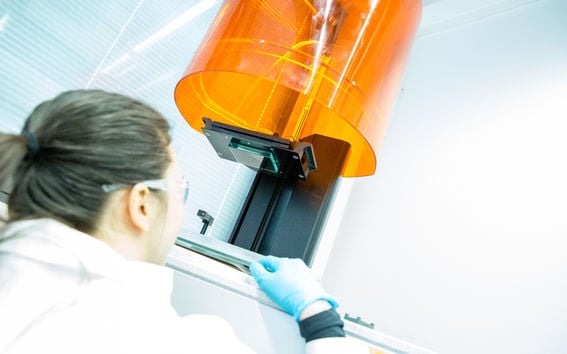
The School of Chemical Engineering produces information, research and technological development as part of the solution for tackling climate change. Finland and the world will continue to need experts who have the courage to combine technology and natural science in ground-breaking ways.
Electrification is one of the means for reducing climate change. Increasing the electrification of, for example, traffic, industry and heating means increasing the demand for metals. We need more diverse ways to use and recycle raw materials, and we need more innovations to generate power.
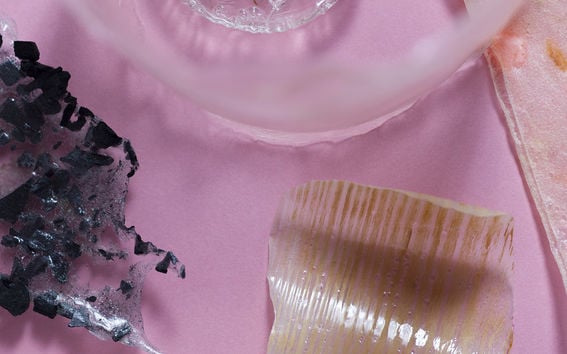
Alongside reducing consumption, a key issue for a sustainable future is the concept of a circular economy.
The value chains of materials, products and information are long and multistranded. Nevertheless, solutions must be found for resource challenges, production chain risks and the lack of incentives for sharing information. The electrification of traffic and growing demands for both rechargeable batteries and primary raw materials are model examples of the kinds of development targets of a circular economy strategy.
Finland and the world at large need people who understand what needs to be done to ensure a clean environment and sustainable development, and people who know how to do it.
We need sustainable and responsible industrial production planners.
We need experts in chemical engineering.
The great global challenges demand system-level solutions. To respond to these, we need experts in bio-economical, circular and environmentally friendly production processes as well as in sustainable materials.
Join our support teams and do your part to ensure that in the future we will continue to have experts and specialists in environmental engineering, metallurgy, biodegradable plastics, battery efficiency, dirt-resistant surfaces, and new molecules for medicine.
This is no simple task with the tightening of public funding. We cannot afford to skimp on science and research. That is why your donation for ensuring the high quality of education and research is more vital than ever.
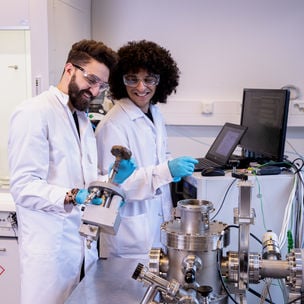
By donating to the School of Chemical Engineering you help to create sustainable economic solutions based on natural resources.
If you are considering giving 10 000 euros or more, please get in touch with one of the persons in charge of the School of Chemical Engineering’s fundraising, either Nora Rahnasto (private donations) or Simo Kohonen (organisational donations).


Our students and researchers strive to advance solutions to today's challenging sustainable development issues, such as societal electrification, hydrogen technology, and biomaterials.
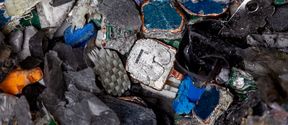
Electrification plays a key role in solving the climate crisis. Aalto University researchers describe what kind of challenges this entails and how they can be tackled.
Coatings made from a wood by-product can keep our glasses and windshields clear
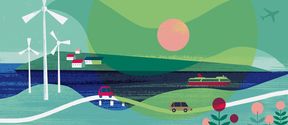
Green hydrogen promises to turn Europe into an energy heavyweight, make traffic emission-free and replace carbon in steel manufacturing. But can it actually deliver – and how?
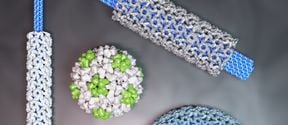
DNA origami nanostructures can be moulded into defined shapes
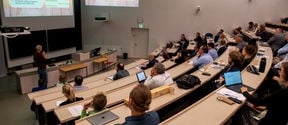
At the end of May, a large American delegation visited Finland to familiarize themselves with our forest and wood sector expertise. FinnCERES, the materials bioeconomy Flagship led by Aalto University and VTT Technical Research Centre of Finland, is involved in developing new business opportunities through bio-based material innovations.

A dip in the biobased liquid gives cucumbers a protective film. Innovative idea will be presented in the international BioDesign Challenge competition.
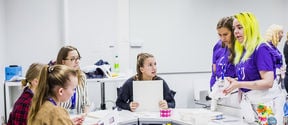
Shaking up Tech is a yearly event by universities for women and gender minorities who are beginning their path towards university studies. With Shaking up Tech, the participanting universities want to offer a versatile understanding of technology as a field and a career choice.
Our students question existing models. Through being active in solving problems caused by overconsumption, they are builders of a sustainable future. The industrial fields represented by the school – in the wood-product, chemical and metal sectors – account for half of all of Finland’s commodity exports.
The school educates professionals in the fields it represents through three departments: Bioproducts and Biosystems, Chemical and Metallurgical Engineering, Chemistry and Materials Science.
The school’s fields demand of its students and staff a fusing of science and technology skills and the capacity for multidisciplinary and responsible thinking.